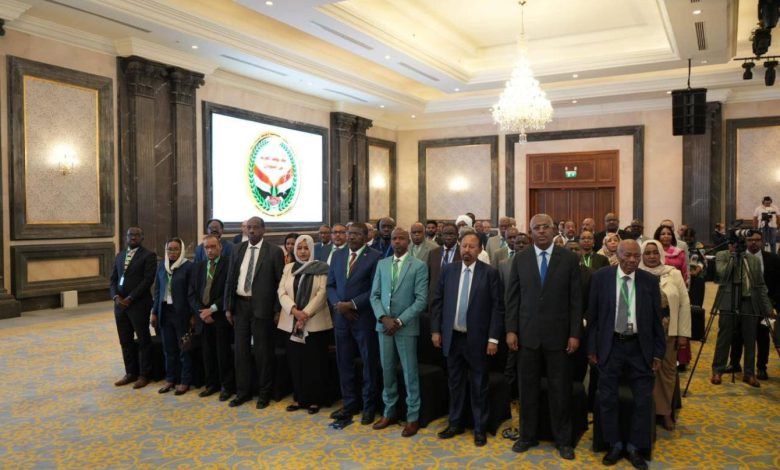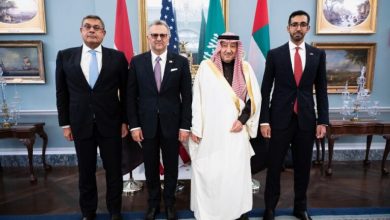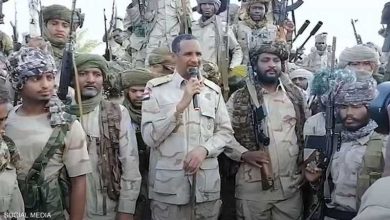Reports
The Dispute Between Cairo and the Rapid Support Forces Likely to Escalate Further

Sudan Events – Agencies
The dispute between Cairo and the Rapid Support Forces (RSF) in Sudan is heading towards “further escalation” following the call by Bashar Tabik, an advisor to the RSF leader, to halt Sudan’s exports to Egypt. This came after RSF leader Mohamed Hamdan Dagalo (Hemedti) accused Egypt on Wednesday of participating in “strikes against his forces,” an accusation that Cairo rejected in a sharp statement, referring to his forces as a “militia.”
According to experts speaking to Al-Sharq Al-Awsat, the RSF’s escalation against Egypt aims to “drag Cairo into a crisis on a regional and international level.” This also forms part of the mutual accusations between the Sudanese army and the RSF regarding receiving direct support from regional powers in the ongoing conflict between them since April 2023.
Egypt rejected Hemedti’s accusations of conducting airstrikes against his forces, affirming in an official statement on Wednesday evening its “continued efforts to stop the war and protect civilians.”
Since April 2023, Sudan has been experiencing an internal war between the Sudanese army, led by General Abdel Fattah Burhan, and the RSF, led by Hemedti, which has claimed the lives of thousands of civilians and forced nearly 13 million Sudanese to flee internally and externally to neighboring countries, according to United Nations estimates.
In a recorded video, Hemedti claimed on Wednesday that Egypt “trained the Sudanese army and provided it with drones,” as well as accusing it of “launching airstrikes against his forces.”
The Egyptian Foreign Ministry dismissed these accusations as “allegations,” calling on “the international community to review the evidence proving the validity of what the RSF militia leader has stated.”
For his part, Tabik rejected the characterization of the RSF as a “militia.” In a post on his personal account on X (formerly Twitter) on Thursday evening, he stated that this “reflects Egyptian interference in Sudan,” arguing that “Egyptian interventions have led to the destruction of Sudan’s infrastructure and civil institutions.” He called for an immediate “halt to Sudanese exports to Egypt” and indicated that “all options are open for dealing with the Egyptian issue.”
Tabik’s comments coincided with statements from Imran Abdullah, a member of the RSF leader’s advisory office in London, who claimed that “Egyptian aircraft bombed sites in Sudan, causing destruction to infrastructure and facilities.”
Yahya Kadwani, a member of the National Defense and Security Committee in the Egyptian Parliament, stated that the RSF’s accusations represent a “provocation against Egypt,” adding that the aim is to pressure Egypt with systematic and false accusations to provoke the Sudanese people.
In contrast, Egyptian expert on African affairs, Rami Zahdi, predicted that the Egyptian-RSF dispute could escalate “if the hostile tone from these forces toward Egypt increases.” He pointed out that the Egyptian Foreign Ministry’s description of the RSF as a “militia” is “one form of escalation.”
In July 2023, the Egyptian capital hosted a summit of Sudan’s neighboring countries to discuss ending the war and also organized a conference for the conflicting political and civilian factions to explore a consensus for a political solution.
Kadwani emphasized that Egypt’s actions during the Sudan crisis “refute the RSF’s accusations,” adding that “Cairo opened its doors to thousands of Sudanese fleeing the war, treating them as Egyptians across various cities rather than confining them to centers and camps for displaced people, as is the case in other countries.”
Egypt hosts thousands of Sudanese who fled the internal conflict, with official statistics indicating that “Cairo received approximately 1.2 million Sudanese,” in addition to thousands of Sudanese who have lived in Egypt for years, according to Egyptian Ambassador to Sudan Hani Salah.
Sudanese researcher residing in Egypt, Salah Khalil, remarked that the accusations from RSF leaders represent an “attempt to drag Egypt into a crisis on a regional and international level,” adding that the RSF’s escalation against Egypt is “part of mutual accusations between its forces and the Sudanese army regarding receiving direct support from regional powers in the ongoing conflict since April 2023.”
Khalil interpreted the Egyptian Foreign Ministry’s characterization of the RSF as a “militia” as “natural,” stating that they “do not represent the Sudanese people.” He pointed out that one of the determinants of Egypt’s stance in the Sudan crisis is “support for national institutions, primarily the military institution, to preserve the unity and sovereignty of Sudan.”
The Sudanese Sovereignty Council classifies the RSF as a “rebel militia,” and the Sudanese army’s leader called for the RSF to be designated as a “terrorist group” during his speech at the United Nations General Assembly in September.
Khalil argued that the RSF’s escalation against Cairo “will not affect Egypt’s position regarding the situation in Sudan,” stating that “Egypt follows a foreign policy based on balance and moderation, maintaining strong relationships with African countries, and will continue its efforts to promote political solutions to end the war in Sudan due to its direct impact on its national security.”



